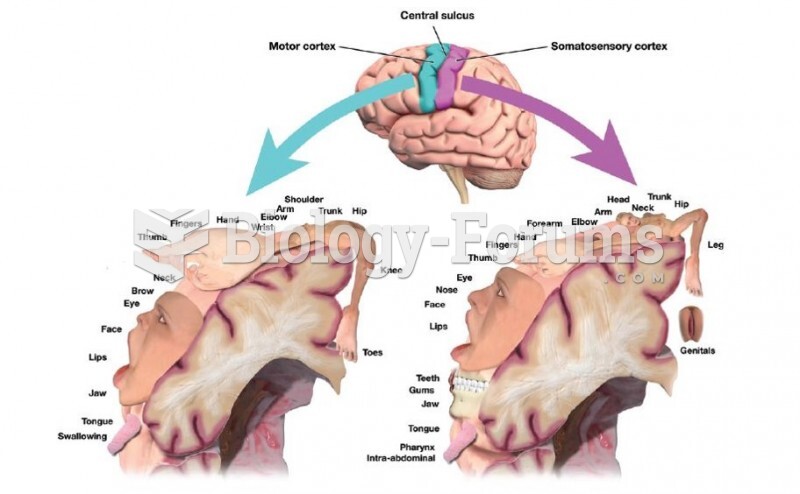|
|
|
The longest a person has survived after a heart transplant is 24 years.
Increased intake of vitamin D has been shown to reduce fractures up to 25% in older people.
About 80% of major fungal systemic infections are due to Candida albicans. Another form, Candida peritonitis, occurs most often in postoperative patients. A rare disease, Candida meningitis, may follow leukemia, kidney transplant, other immunosuppressed factors, or when suffering from Candida septicemia.
Symptoms of kidney problems include a loss of appetite, back pain (which may be sudden and intense), chills, abdominal pain, fluid retention, nausea, the urge to urinate, vomiting, and fever.
People with high total cholesterol have about two times the risk for heart disease as people with ideal levels.







